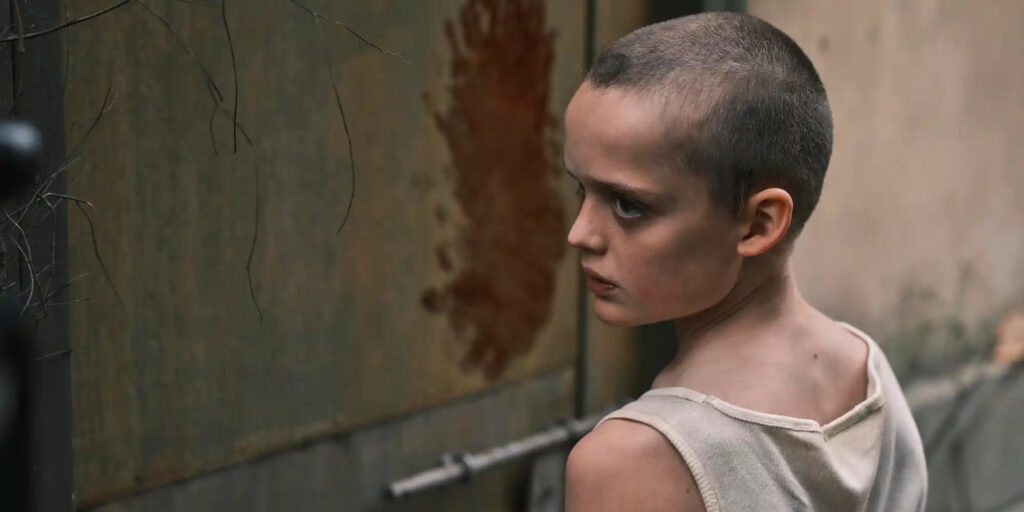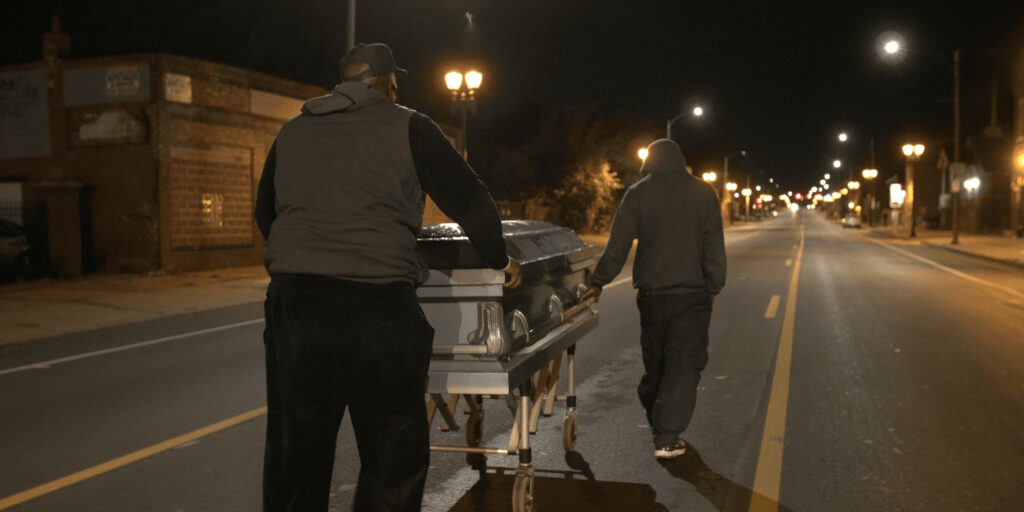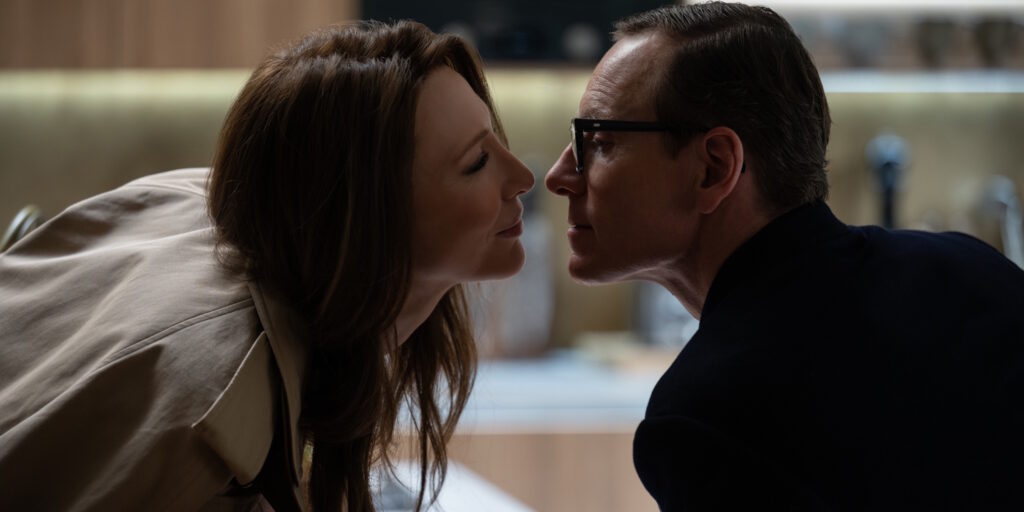While 2023 is only half-over, it’s already been a tumultuous year for movies. The ongoing Writers Guild of America strike is but one symptom of an ailing industry dominated by leadership that seems to see art as mere content – or as fungible chits to be shuffled around to maximize quarterly profits. Same as it ever was, perhaps, but it’s hard to resist a sensation of gloom-and-doom when every day seems to bring a new story of some brutal act corporate cost-cutting or baffling decision vis-à-vis cultural access and preservation.
Fortunately, cinema marches on, as reliable as the next Spider-Man sequel or Hong Sang-Soo project. Notwithstanding the upheavals that have wracked the industry, the first six months of 2023 have given us a plethora of reasons to maintain faith in movies as a source of artistic depth, insight, and exhilaration. The Editors of The Take-Up have surveyed the current cinematic landscape – from theatrical to streaming, animation to documentary, franchise blockbuster to experimental art-film – and selected 15 films that represent the best that the year has to offer (so far).
Honorable Mentions: Are you There, God? It’s Me, Margaret.; Beau Is Afraid; Carole King Home Again: Live in Central Park; Dungeons & Dragons: Honor Among Thieves; Fast X; Geographies of Solitude; Godland; John Wick: Chapter 4; Kokomo City; Pacifiction; The Plains.
Asteroid City
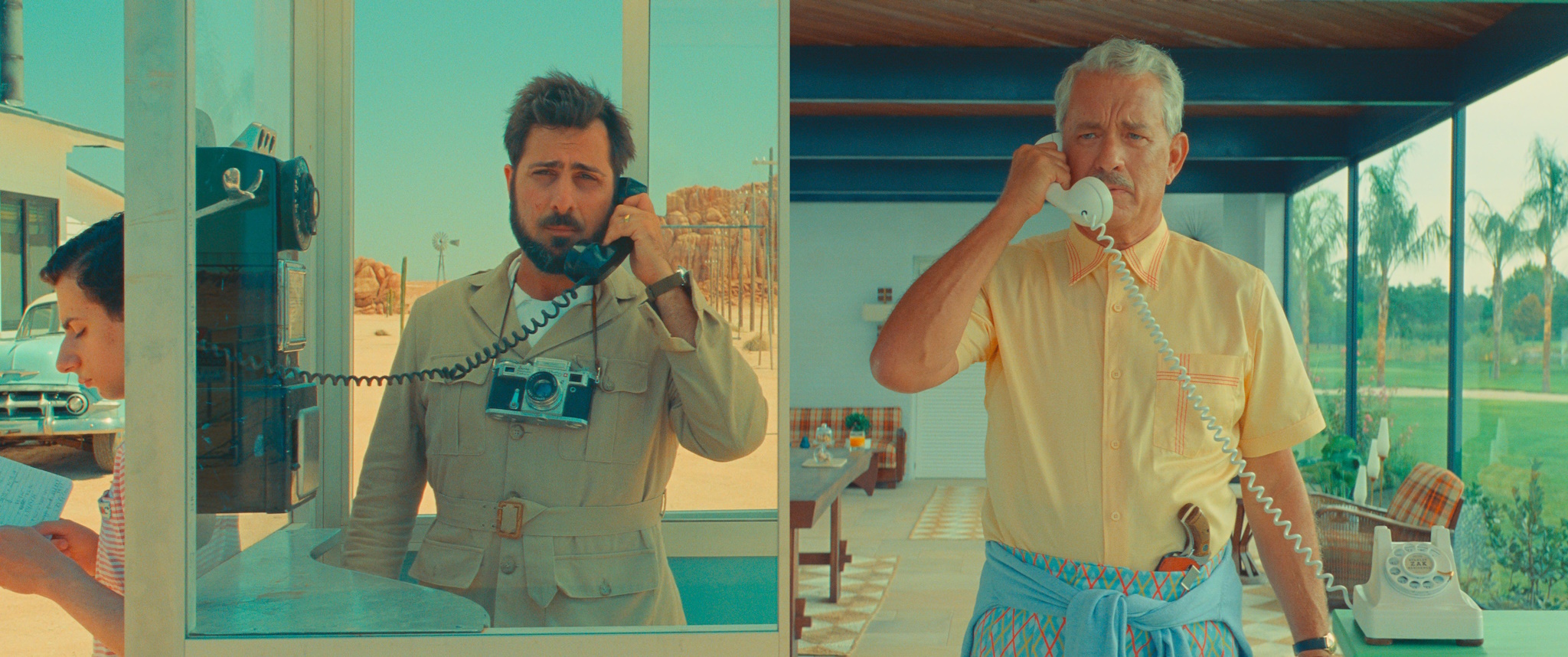
Asteroid City is Wes Anderson’s most monumental creation yet. And not just because it’s about the act of creation and the existential craters that act fills. Here, his ornate sandbox has found its greatest purpose, and the director (style/brand/mode) is begging us to play in it with him. Deep under the carefully stacked toys and packed layers of colorful earth lie all of his preoccupations and the joyous, mournful understanding of life they can reveal. Asteroid City finds its (non-)answers in what is surely the most fruitful time for regenerating the glory and glorification of the American Myth, the 1950s. Its callbacks aren’t really influences, they’re the details by which he finds a unifying field: The Searchers, Red and Violet Scares, the Actor’s Studio, James Dean and Marilyn Monroe, teenagers, hot rods, the suburbs, nuclear families, and most importantly, an unending fear and fascination of the Great Unknown. It’s such an overwhelming experience, even the actors don’t understand the play. Asteroid City suggests that simply playing in it is exactly the point. (Joshua Ray) [Now playing in select theaters. Reviewed here.]
Evil Dead Rise
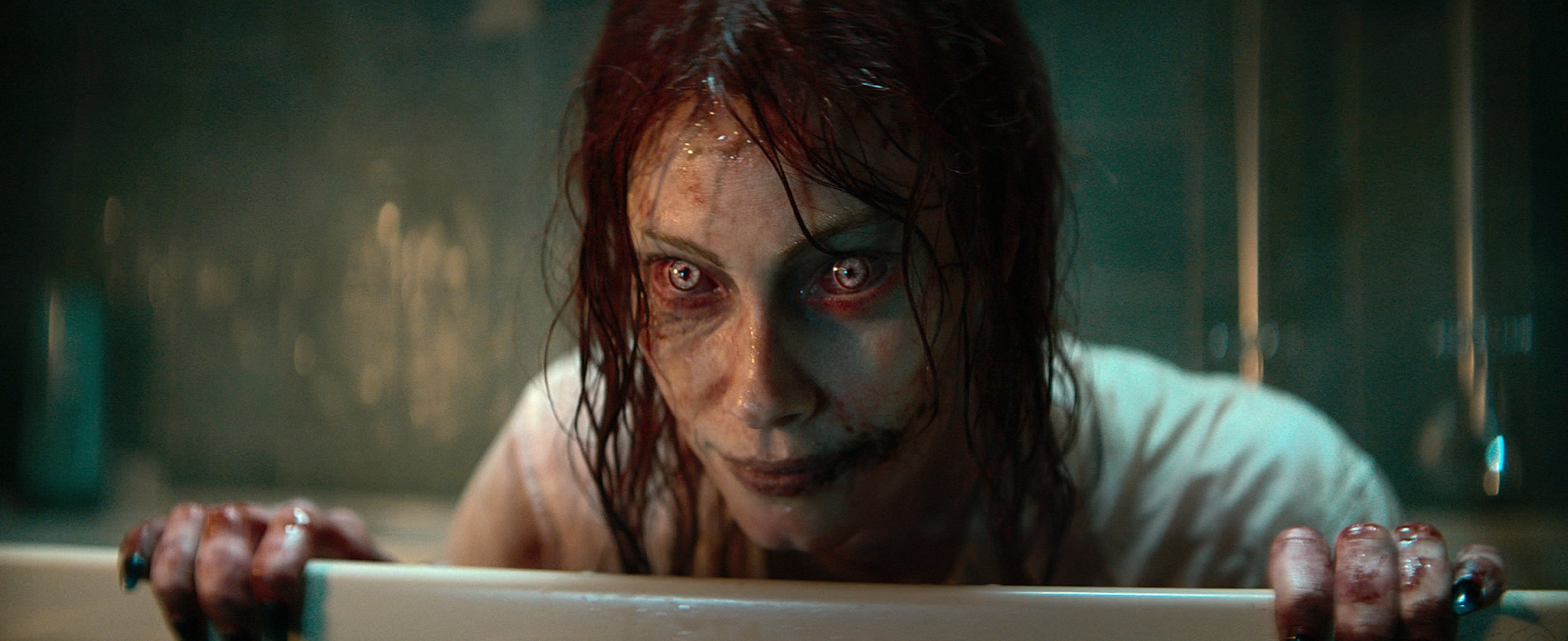
The latest in a “franchise” that contains a re-quel masterpiece and a tenuously related third, Evil Dead Rise is situated somewhere between the original’s exploitation cinema and the exploitative 2014 reboot. Within its first moments, director Lee Cronin’s intentions seem clear: He’s fist-pumping for the Dead. In its anything-gores unfolding, however, the director questions that reaction and his elicitation of it. Rise plays as if the demonic spirit of Buster Keaton possessed your dear mother’s corpse in one of the comedian’s house-of-cards setpieces. It’s violent and nauseating fun, with a Woke Left v. Religious Right metaphor that’s pat yet pithy. (Joshua Ray) [Now available to stream on Max and to rent one major online platforms.]
Human Flowers of Flesh
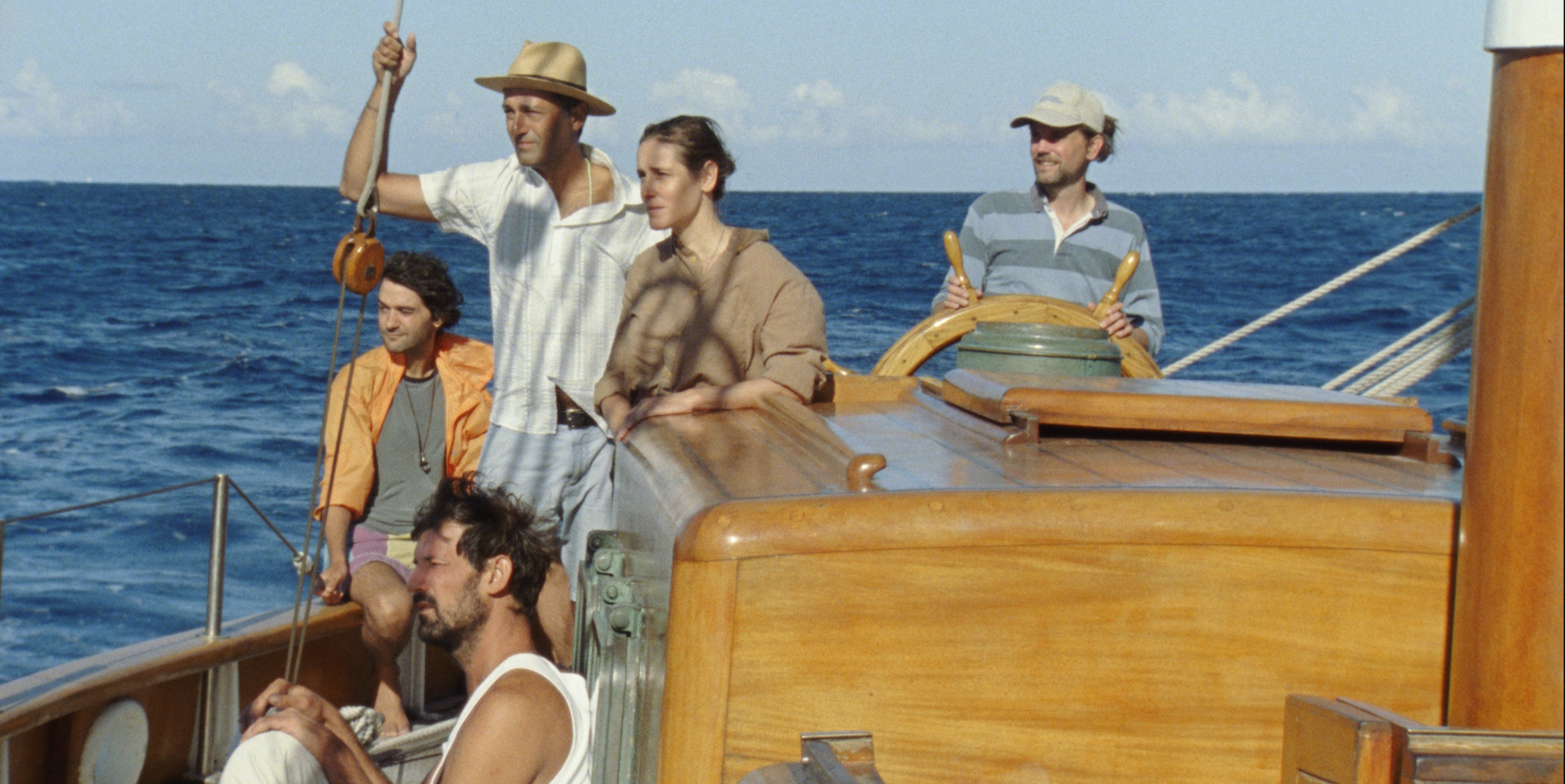
As the metro area is subjected to hundred-degree temperatures, what better time to spotlight Human Flowers of Flesh, the filmic equivalent of a humid summer vacation? Helena Wittmann’s sophomore feature occupies similar territory as her first film Drift, as both works showcase a palpable sea setting. Here, Ida (Angeliki Papoulia), a yacht owner, presides over an international crew of five men from all corners of the world as they follow along the path of the French Foreign Legion. Their days are filled with silent tasks out on the water, their nights with excursions onto the muggy mainland. It’s a captivatingly meditative thing, and the 16mm cinematography — captured by Wittmann herself — contains some of the most gorgeous shots one is likely to see this year. (Kayla McCulloch) [Now playing in select theaters. Read Kayla’s 2022 NYFF review at The Lens.]
Matter of Out of Place
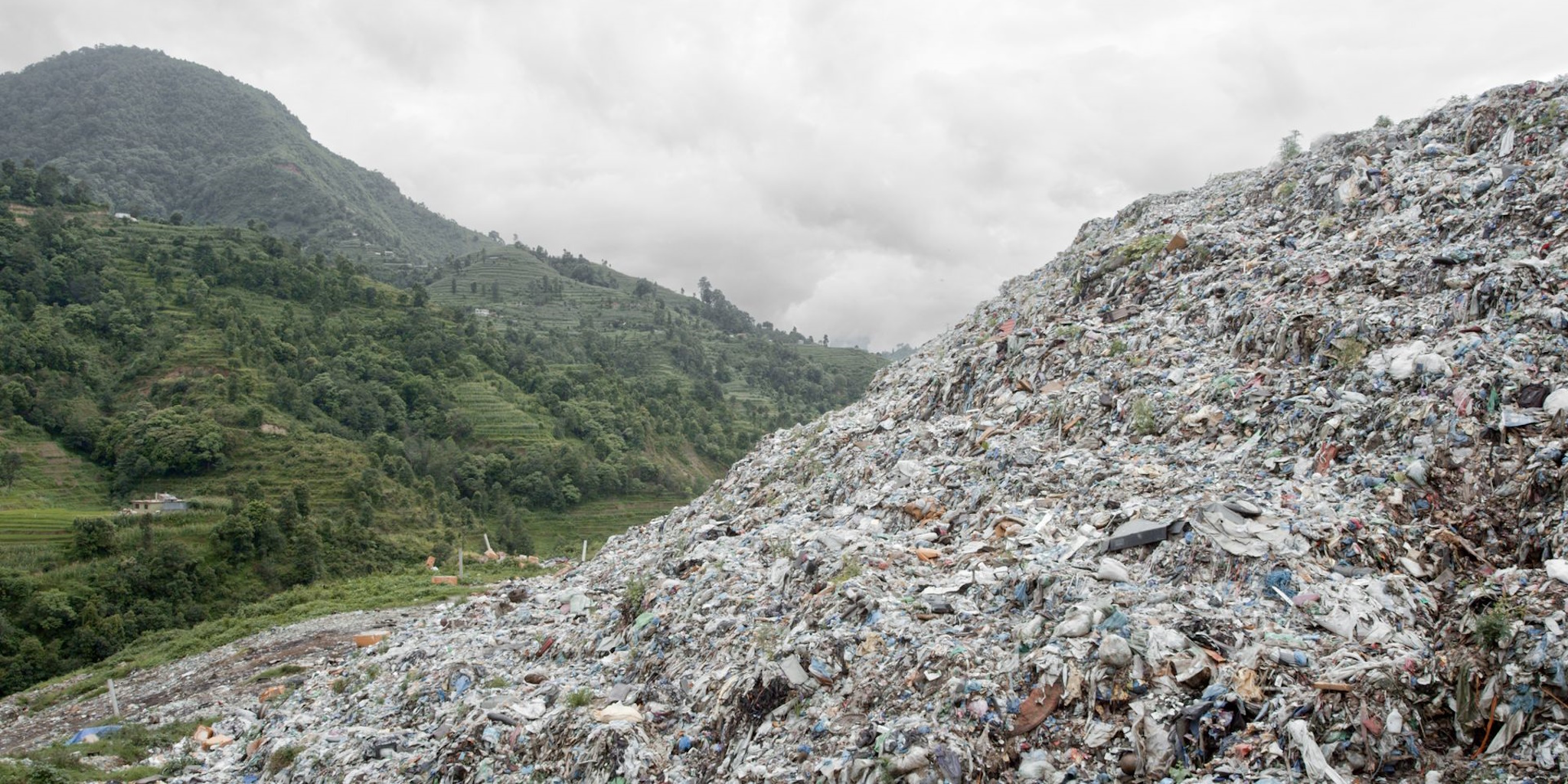
Nikolaus Geyrhalter does slow cinema as polemic, and labeling it as such is neither pejorative nor contradictory. With Matter Out Of Place, his mode of documentary filmmaking — tangential to that of the Harvard Sensory Ethnography — has become necessary and even urgent. Continuing where his Earth left off with its concerns of ownership and abuse of material, Matter is about the aftermath of our human folly with this industrial “progress.” In one scene that feels like it plays out forever, Geyrhalter sets his still vision in a landfill, observing the process by which garbage finds its new, likely permanent home. The hypnotic spell it casts gives the impression of Truth. Even though this scene actually lasts for only about ten minutes, at the rate we continue, what it depicts will never stop. (Joshua Ray) [Now available to stream on Ovid.TV. Reviewed on The Take-Up Podcast.]
Monica
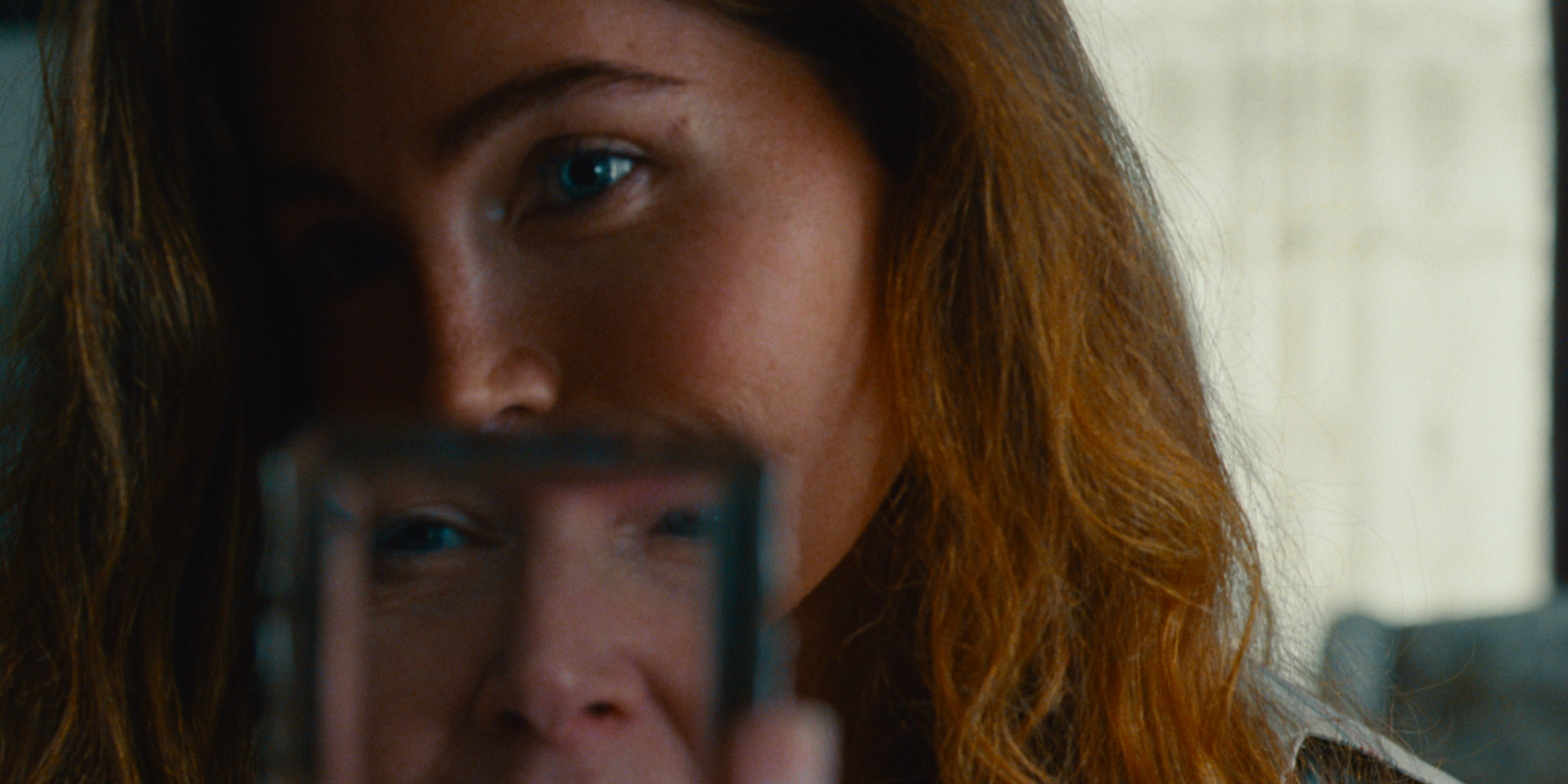
For an inherently visual medium, it’s surprising how rare it is to see a film like Monica that says so much with so little. Andrea Pallaoro’s feature is a breath of fresh air in this regard, forgoing dialogue at almost every point where other, lesser filmmakers might insert some grand, teary monologue. The film’s plot is straightforward: Monica (Trace Lysette) returns home — a place she never thought she’d go again — to care for her dying mother (Patricia Clarkson) — a person she never thought she’d see again. It might sound trite, but the premise plays third chair to the heart-rending performances and stunning 35mm camerawork. Lysette and Clarkson’s career-best turns are framed in static 1.20:1 shots that often leave the viewer (and, coincidentally, the on-screen talent) speechless. It’s truly something special. (Kayla McCulloch) [Now available to rent on major online platforms. Reviewed by Kayla at Riverfront Times.]
Past Lives
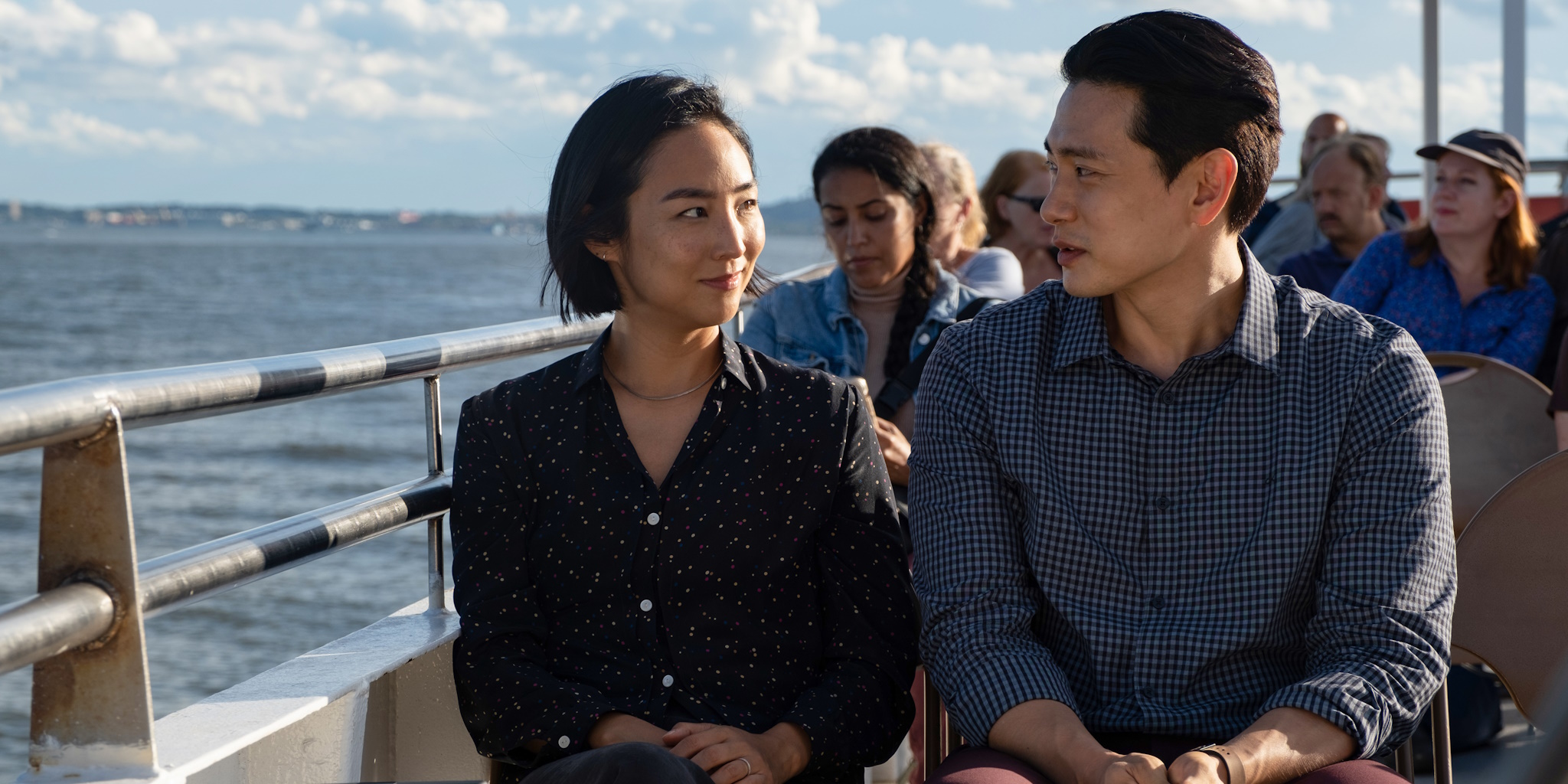
Writer-director Celine Song’s aching and wonderfully observed romantic drama was the toast of Sundance Film Festival in January, and it’s easy to see why. Boasting hard-won honesty and rarefied insight when it comes to matters of the heart, Past Lives is the sort of inconspicuous indie treasure that induces self-reflection in the viewer with effortless grace. Greta Lee shines magnificently in the role of an assimilated immigrant woman whose awkward yet intense reunion with a long-lost childhood sweetheart compels her to ruminate on roads not taken and the lives she left behind. (Andrew Wyatt) [Now playing in select theaters. Reviewed on The Take-Up Podcast.]
Pretty Baby: Brooke Shields
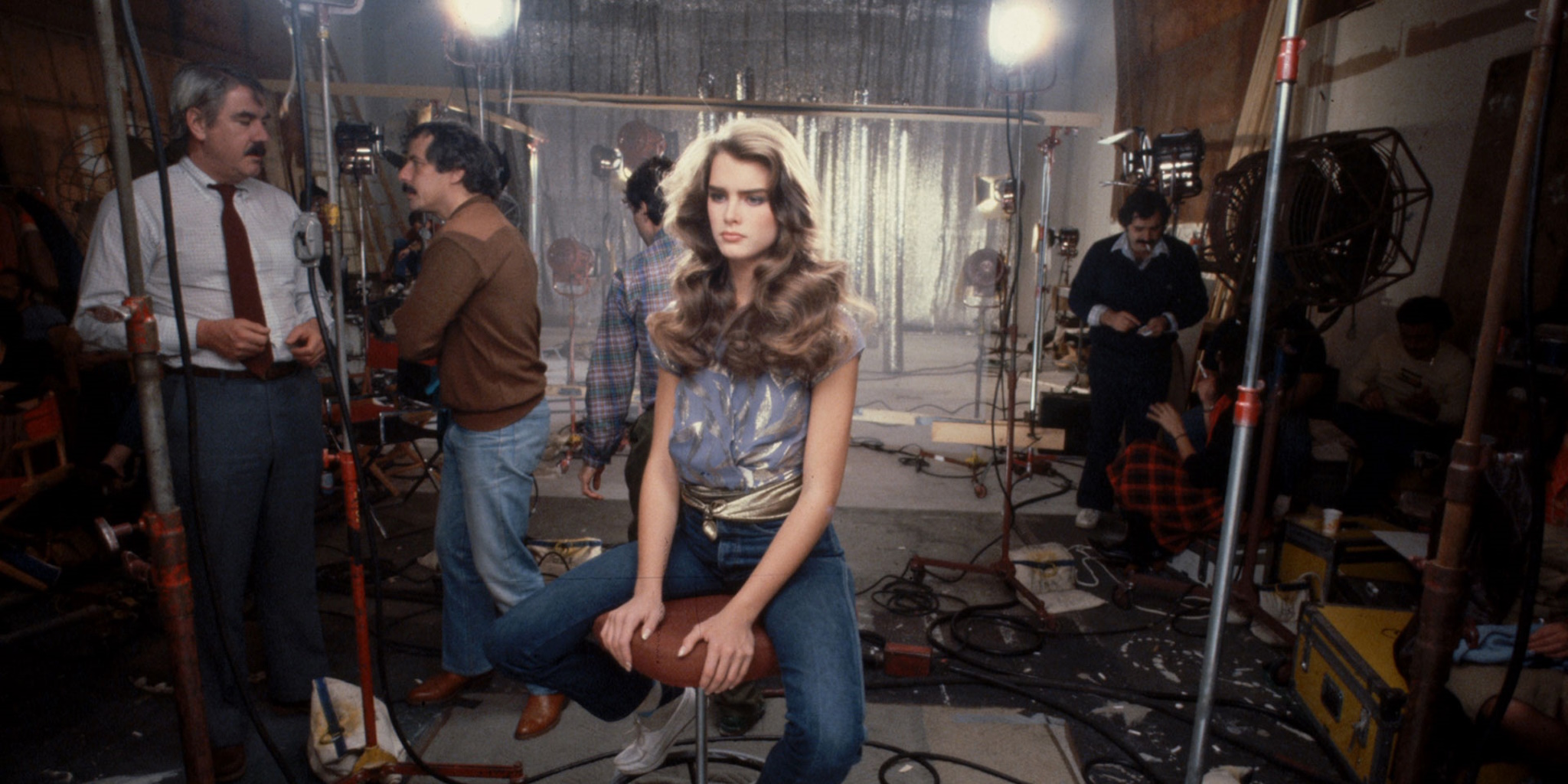
Lana Wilson’s Sundance standout is one of several recent documentary projects to address the troubling relationship between young girls and the culture that objectifies them — honorable mentions to Olivia Crist and Julia Willoughby Nason’s Shiny Happy People: Duggar Family Secrets (2023) and the ever-harrowing second season of Undercover Underage (2021- ). Pretty Baby: Brooke Shields interrogates the adults who were present at every step of Shields’s upbringing and allowed her childhood superstardom to ignite (and subsequently extinguish) for all the most rotten reasons. While Wilson’s techniques are decidedly conventional, it’s consistently fascinating to see how much depth she can evoke from her subjects where others would rather wade into the shallow end of hagiography. (See also: Taylor Swift: Miss Americana.) (Kayla McCulloch) [Now available to stream on Hulu.]
Rye Lane

Cinephiles who are concerned about the future of the romcom should look no further than director Raine Allen-Miller’s delightful Rye Lane, which enthusiastically embraces the genre’s tropes and employs them to fresh, funky purposes. Paying joyful tribute to Spike Lee, Danny Boyle, and Steve McQueen – while still very much doing her own smart, slightly fantastical thing – Allen-Miller uncovers universal, lonely-hearts truths in the colors and textures of Black London. It’s a film so vivid, funny, and swooningly cinematic that it will make you want to be hapless, unlucky-in-love twentysomething all over again. (Andrew Wyatt) [Now available to stream on Hulu. Reviewed on The Take-Up Podcast.]
Shin Kamen Rider
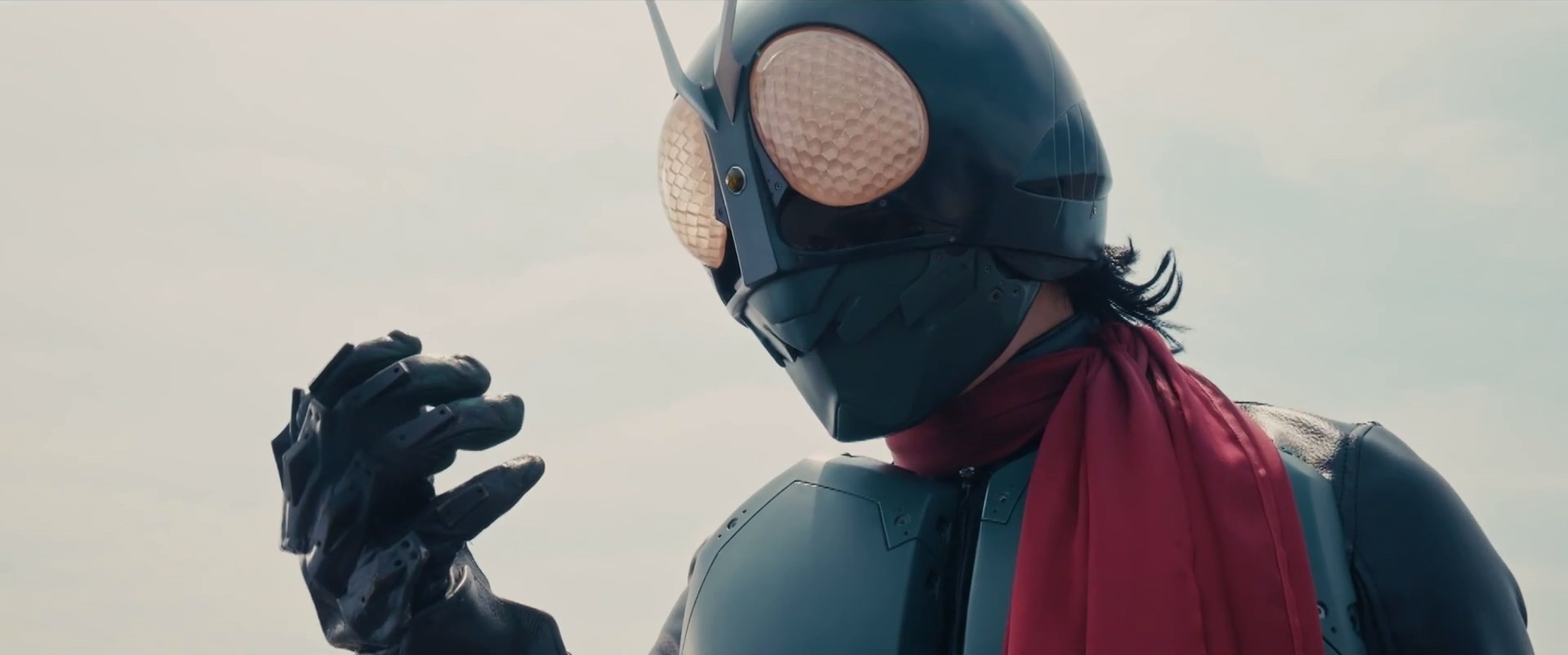
Above the deliriously fun Fast X and solid Indiana Jones 5, Shin Kamen Rider easily stands at the apex of the inundating but occasionally thrilling action-franchise upkeep of 2023. Although he’s obsessed over by anime fans everywhere for his Evangelion series, Hideako Anno has not-so-quietly become a live-action director of note with his Shin (or “new”) tokusatsu films, having already rebooted Godzilla and Ultraman with his philosophical and expressive comic book style. Shin Kamen Rider received a paltry release stateside through the pitiful Fathom “special event” theatrical platform. It’s a damn shame, because Anno’s latest zooms past its U.S. brethren in virtually every way. Chiefly, it manages a whole MCU phase’s-worth of imagination and storytelling in less than a Quantumania. (Joshua Ray) [Now playing in select theaters.]
Showing Up

American master Kelly Reichardt delivers her most quietly engrossing feature to date, a lo-fi, low-stakes little gem about the day-to-day trials of creative life. A never-better Michelle Williams stars as a harried, dyspeptic Portland, Ore., sculptor who is beset by a succession of small distractions and complications as she prepares for a modest solo show. Reichardt’s characteristically perceptive direction erases the paper-thin boundaries between art life and real life, but Showing Up’s most alluring aspect might be the way it revels in the tangible specifics of creation and community. (Andrew Wyatt) [Now available to rent on major online platforms.]
Skinamarink
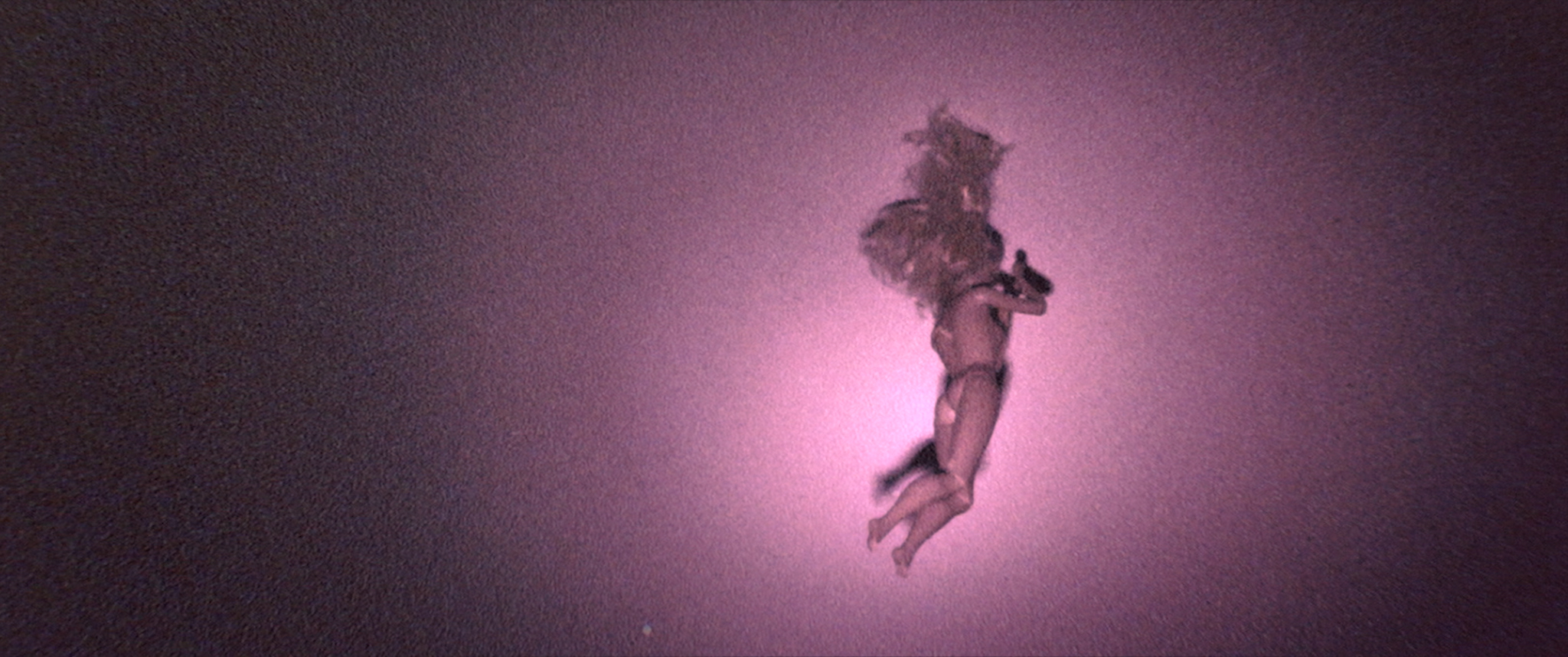
Kyle Edward Ball’s divisive experimental horror feature captures the surreal, scuttling wrongness of a childhood dream – specifically, a nightmare in which one’s home is slowly mutating into a devouring abyss. For viewers who are on the film’s lonely, elliptical, avant-garde wavelength, Skinamarink isn’t just a spookily effective evocation of a sensation buried deep in the subconscious. It’s also evidence that Ball is one of the first filmmakers since David Lynch to grasp the extent to which our fears (and our memories of our fears) are now inextricably entangled with videographic imagery. (Andrew Wyatt) [Now available to stream on Shudder and to rent on major online platforms. Reviewed here.]
Spider-Man: Across the Spider-Verse
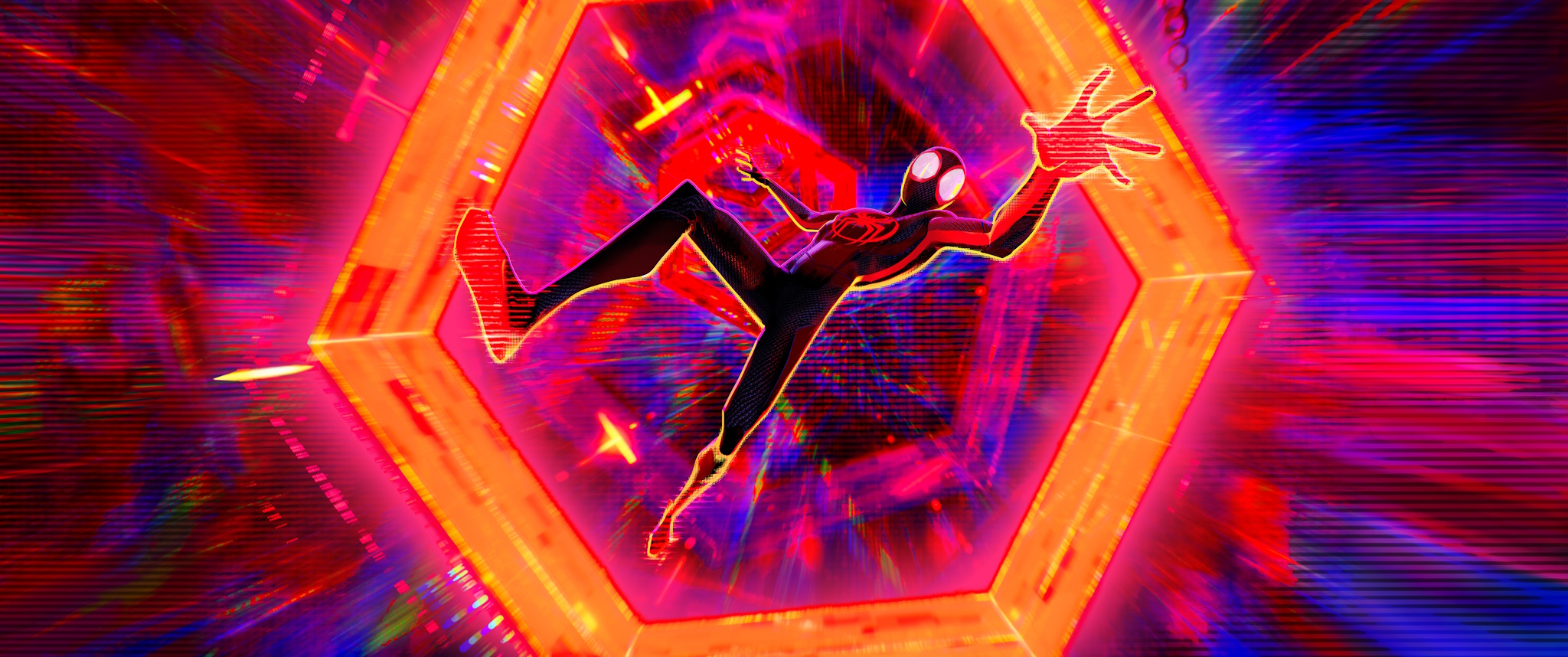
Faced with the seemingly impossible feat of one-upping their triumphant 2018 feature, the artists at Sony Pictures rolled up their sleeves and crafted the most aesthetically bracing work of 21st-century studio animation to date. It might be a rip-roaring multiversal adventure that juggles almost as many styles and techniques as Spider-People, but Across the Spider-Verse never forgets the loneliness and self-doubt that make Harlem teenager and part-time Webslinger Miles Morales compelling. In a sea of joyless, IP-exploiting “content,” Spider-Verse is superhero pop art that truly soars. (Andrew Wyatt) [Now playing in theaters. Reviewed by Andrew at Riverfront Times.]
Stonewalling

Though certain audiences are growing tired of the Long Movie, with an unusually large number of franchise tentpoles and other studio blockbusters pushing towards the three-hour mark, there’s pure joy to be found in a film that is proud to take its time. Stonewalling is no tentpole, to be sure, but its 148-minute runtime puts it in the same league as such contemporary epics. Following a young woman named Lynn (Yao Honggui) as she grapples with an unexpected pregnancy, co-directors Ryuji Otsuka and Huang Ji — working from Huang’s script — allow their characters to traverse the delicate drama of daily life in 2020s China at their own pace. You won’t find a car chase, shootout, or fistfight here, but Lynn does break up a dispute careening dangerously toward an exchange of blows. It’s a sensitive, endearing work that sticks with the viewer far longer than the time invested. (Kayla McCulloch) [Now playing in select theaters. Reviewed here.]
Suzume

Makoto Shinkai hit big with 2016’s Your Name, his mind-bending shojo anime that jerked tears around the world. Suzume, Makoto’s latest, is a refinement that’s somehow even more dizzyingly intricate, sincere, and awesome than the director’s breakout. Here his story is bifurcated into a rousing adventure and a wistful road trip, each astounding in the breadth of their components: world-hopping portals, a romance with a possessed chair, an entire fantasy rulebook for handling natural disasters, and blatant nods to Studio Ghibli classics. And yet it contains an uncommon purity in its lovelorn and grief-stricken heart, one that makes the fantasy bombast undeniably real. (Joshua Ray) [Now playing in select theaters. Reviewed on the Take-Up Podcast.]
Walk Up
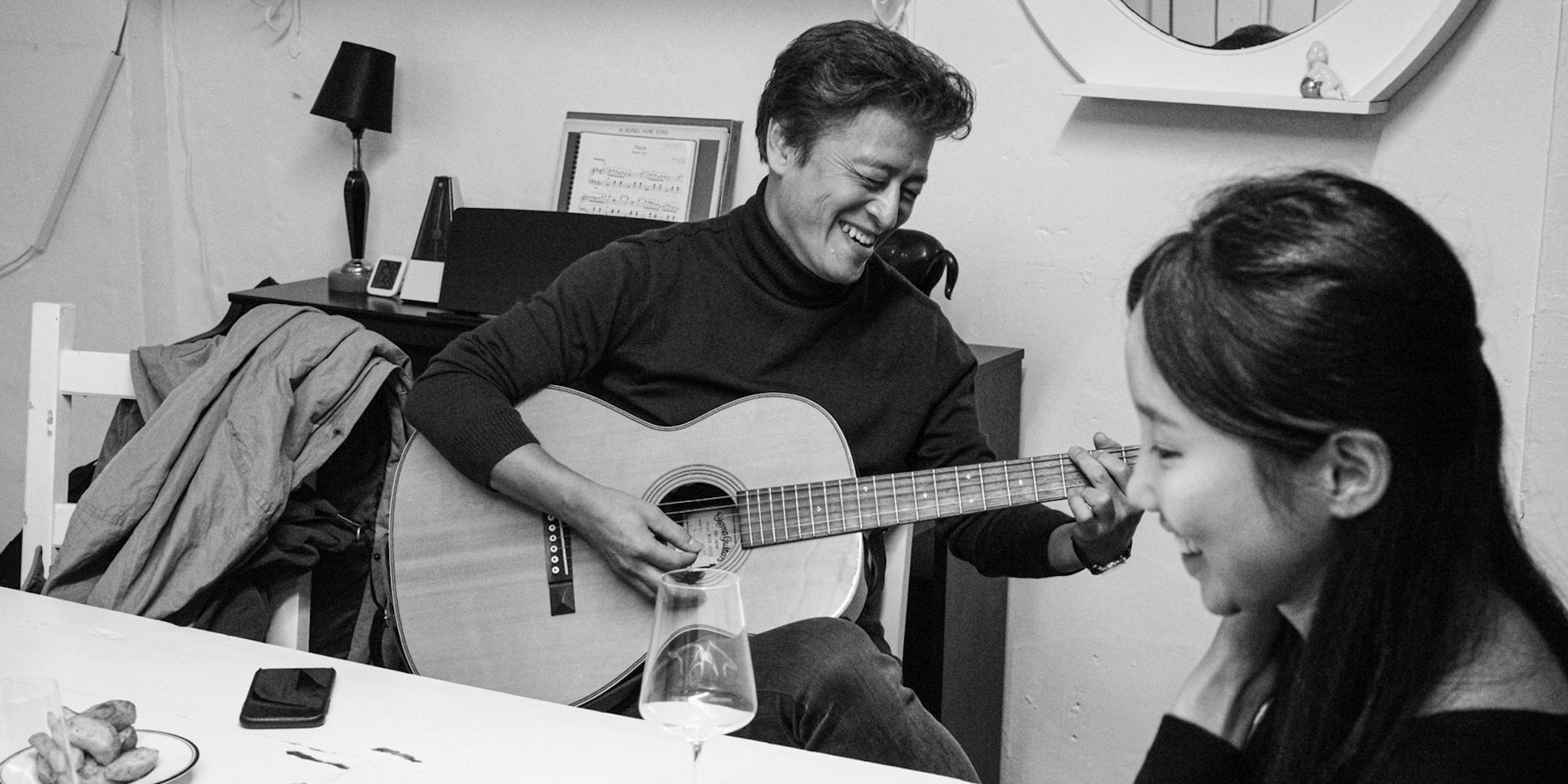
Fortunately for cinephiles, the era of Hong Sang-soo Supremacy has continued this year. Walk Up might be the last of the South Korean multi-hyphenate’s 2022 output to reach the States before one or two of his 2023 works (hopefully) make their way to local screens, but it’s certainly not the least. With Walk Up, Hong turns a play-on-words into a feature-length affair by examining the different stories contained on each story (or floor) of an unassuming building in Seoul. The writer-director-producer-editor-composer loves a good gimmick, but, to be clear, so do his loyal admirers. That’s not to suggest Walk Up is wonderful merely because of its concept — it’s a bold, vulnerable entry from the notoriously reticent filmmaker who has arrived at a surprisingly (touchingly) revelatory place as he enters his 60s. (Kayla McCulloch) [Now playing in select theaters. Reviewed here.]

